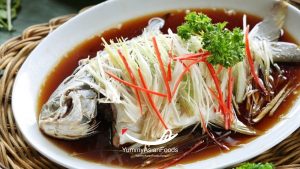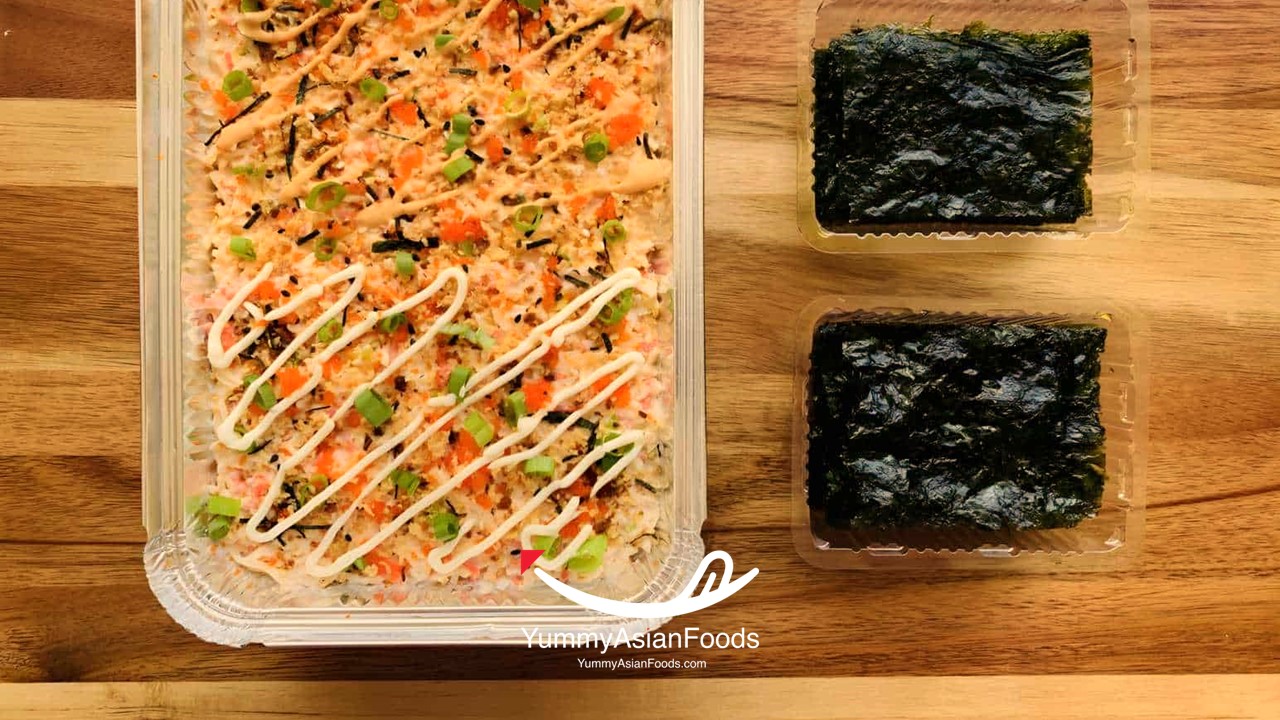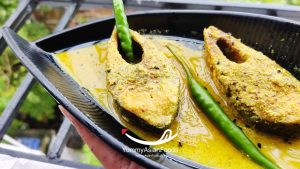Table of Contents
ToggleIn the vast expanse of the open sea, cargo ship and vessel crews face numerous challenges daily, from unpredictable weather conditions to demanding work schedules. Amidst this demanding environment, maintaining a healthy diet becomes crucial for these hardworking individuals who spend weeks or even months at sea. Recognizing the need for nutritious meals that provide essential energy and sustenance, a new trend is emerging: healthy Asian food options tailored specifically to meet the dietary needs of cargo ships and dockyard workers during ship repairs. These delectable dishes not only offer a mouthwatering blend of flavors but also incorporate wholesome ingredients that fuel the body and promote overall well-being. So, let’s embark on a culinary journey through some enticing choices that are designed to keep these dedicated seafarers energized and nourished throughout their maritime adventures.
The Importance of Healthy Food for Cargo Ship Crews
It’s common knowledge that a healthy diet is crucial for our overall well-being. However, the importance of healthy food becomes even more prominent when considering the demanding nature of work that cargo ship crews undertake on a daily basis. While their tugboats and barges navigate through treacherous waters, these crew members face physical exhaustion and mental stress. Therefore, providing them with nutritious meals is essential to ensuring their fitness and productivity.
A balanced diet filled with fresh fruits, vegetables, whole grains, lean protein sources, and adequate hydration not only boosts crew members’ energy levels but also supports their immune systems. The maritime environment can expose sailors to various pathogens, making it crucial for them to maintain strong immunity through proper nutrition. Moreover, healthy food choices can also lead to better mental health outcomes by enhancing mood stability and reducing symptoms of depression and anxiety among crew members.
Recognizing the challenges faced by cargo ship crews in obtaining fresh supplies while at sea is vital to ensuring they have access to nutritious meals. Proper storage facilities should be set up on board the ships to keep perishable items fresh for longer periods of time. Additionally, partnering with local suppliers along shipping routes can ensure regular delivery of fresh produce during port stops. Ultimately, investing in the health of cargo ship crews through healthy food options will not only improve their well-being but also guarantee smooth sailing journeys and efficient operations in the long run.

Understanding Asian Cuisine for Cargo Ship Crews and Dockyard Workers
Asian cuisine is rich and diverse, offering a wide variety of flavors and textures that can be both comforting and exciting. For cargo ship crews and dockyard workers, who often work long hours in physically demanding environments, it is crucial to prioritize their health and well-being through nourishing meals. Understanding Asian cuisine not only introduces them to new tastes but also provides an opportunity to explore the nutritional benefits of this culinary tradition.
One key aspect of Asian cuisine is its focus on fresh ingredients. From stir-fries to baked sushi, many Asian dishes are composed of vibrant vegetables, succulent seafood, and lean meats. This emphasis on fresh produce ensures that cargo ship crews and dockyard workers are getting essential vitamins, minerals, and antioxidants to support their immune systems. Additionally, including a variety of colorful vegetables not only adds visual appeal but also provides a range of nutrients necessary for optimal health.
Another fundamental concept in Asian cuisine is the balance between different elements such as sweet, salty, sour, and spicy flavors. Cargo ship crews and dockyard workers can benefit from incorporating this balance into their meals, as it helps satisfy cravings while promoting satiety. By exploring various Asian dishes with contrasting taste profiles, like sweet teriyaki chicken or spicy tom yum soup with tangy lime juice accents, crews can experience flavor combinations that rejuvenate their palates after long days at sea or challenging physical labor.
Understanding Asian cuisine offers cargo ship crews and dockyard workers an opportunity for nourishment alongside delicious flavors.

Benefits of Healthy Asian Food for Cargo Ship Crews and Dockyard Workers
One of the most significant benefits of healthy Asian food for cargo ship crews and dockyard workers is its ability to provide high levels of energy and stamina. Long hours and physically demanding work can easily drain a person’s energy, but with the right fuel from nutrient-rich Asian dishes, these workers can stay energized throughout their shifts. Ingredients commonly found in Asian cuisine, like rice, noodles, tofu, and vegetables, are packed with complex carbohydrates that release energy slowly and keep fatigue at bay.
Moreover, healthy Asian food also promotes better mental health among cargo ship crews and dockyard workers. The inclusion of fresh herbs and spices in Asian dishes not only enhances their flavor but also contributes to improved cognitive functions. For example, turmeric, commonly used in Indian and Indonesian cuisines, contains curcumin, which has been linked to enhanced memory retention. Similarly, ginger is known for its calming properties, which can help combat the stress and anxiety that often arise from working in high-pressure environments.
In addition to physical endurance and mental well-being, healthy Asian food also supports optimal digestive health for cargo ship crews and dockyard workers. Traditional fermentation techniques like those used in Korean kimchi or Japanese miso soup aid gut health by providing beneficial probiotics that promote a balanced microbiome. In turn, this strengthens immunity against common illnesses that could otherwise disrupt the seamless operation of both cargo ships and dockyards.

Incorporating Asian Ingredients on Ships and Dockyard Workers
Incorporating Asian ingredients into the meals of cargo ship crews and dockyard workers not only adds variety to their diets but also brings a range of health benefits. Asian cuisine often relies on fresh vegetables, lean proteins, and aromatic spices, making it a nutritious option for those working physically demanding jobs. By introducing staples like tofu, seaweed, ginger, and various types of mushrooms into their meals, these workers can experience increased energy levels and improved overall well-being.
One key ingredient that is commonly used in Asian cuisine is turmeric. This vibrant yellow spice contains natural compounds called curcuminoids, which have been found to have anti-inflammatory effects. For dockyard workers who are constantly exposed to physical strain and long hours on their feet, incorporating turmeric into their meals can help mitigate inflammation in the body caused by repetitive motions or heavy lifting. Turmeric can be added to stir-fries or used as a seasoning in soups to enhance both flavor and health benefits.
Another way to incorporate Asian ingredients is by using miso paste. Made from fermented soybeans with salt and koji (a type of mold), miso paste not only adds depth of flavor but also provides probiotics that promote gut health. Cargo ship crews often face challenges when it comes to maintaining proper nutrition due to limited access to fresh produce during long voyages. Adding miso paste to their diet helps ensure that they are getting the necessary nutrients while also supporting their digestive system.

Easy and Nutritious Asian Recipes for Cargo Ship Crews and Dockyard Workers
Looking for easy and nutritious recipes that will keep cargo ship crews and dockyard workers energized throughout their long shifts? Look no further – Asian cuisine has got you covered. With its blend of vibrant flavors, fresh ingredients, and balanced nutrition, Asian food is the perfect choice for those looking to stay healthy and well-nourished on the job.
One such recipe is stir-fried vegetables with tofu. This dish is not only packed with vitamins and minerals but also provides a good source of protein with the addition of tofu. Simply chop up your favorite vegetables—think broccoli, bell peppers, carrots, and snow peas – and sauté them in a wok or large skillet until they are tender-crisp. Add cubes of firm tofu for a satisfying texture, and cook until heated through. Finish it off with a flavorful sauce made from soy sauce, ginger, garlic, oyster sauce (optional), and sesame oil.
Another tasty option is Thai green curry soup with chicken or shrimp. This fragrant dish combines creamy coconut milk with aromatic herbs such as lemongrass, lime leaves, galangal (a type of ginger), and Thai basil. The spiciness can be adjusted to your liking by adding more or less green curry paste – be sure to taste as you go! Throw in some chunks of chicken or shrimp along with vegetables like sliced cabbage or bamboo shoots for a complete meal that will warm you up during cold nights at sea or in the dockyard.

Tips for Maintaining a Healthy Diet for Cargo Ship Crews and Dockyard Workers
Cargo ship crews and dockyard workers often face long hours of physically demanding work, making it essential for them to maintain a healthy diet. However, due to the nature of their jobs, they may face challenges finding nutritious meals while onboard or during long shifts. To overcome these obstacles and ensure optimal health and well-being, here are some valuable tips for maintaining a healthy diet.
First, it’s crucial to prioritize hydration by drinking plenty of water throughout the day. Dehydration can lead to fatigue and decreased alertness, so always have a reusable water bottle on hand. Additionally, aim to consume balanced meals that include a combination of protein, carbohydrates, healthy fats, and fiber-rich foods like fruits and vegetables. Consider packing pre-portioned snacks such as nuts or granola bars to supplement your meals and ward off hunger pangs between breaks.
Furthermore, staying mindful of portion sizes can be incredibly beneficial when trying to maintain a healthy diet in these challenging working environments. While it can be tempting to indulge in large portions after exerting physical effort throughout the day or during longer stretches without access to fresh food options on cargo ships, keeping portions in check is essential. By practicing portion control techniques like using smaller plates or measuring out servings ahead of time, you can avoid overeating and instead focus on fueling your body with the nutrients it needs for optimal performance.
Maintaining a healthy diet as cargo ship crews or dockyard workers is vital not only for physical health but also for mental well-being.

Prioritizing Cargo Ship Crews and Dockyard Workers’ Health through Healthy Asian Food
Crew health is of utmost importance, especially for those working on cargo ships or in dockyards where physical labor and rigorous schedules are the norm. In these demanding environments, ensuring that crew members have access to healthy and nutritious food becomes vital not only for their well-being but also for their performance onboard. Asian cuisine, known for its diverse flavors and wholesome ingredients, offers a myriad of options that can help prioritize crew health.
Asian food incorporates a range of vegetables, lean proteins, and whole grains that provide essential nutrients like vitamins, minerals, and fiber. For example, dishes like stir-fried vegetables with tofu or chicken provide a satisfying balance of protein and fiber while being low in fat. This helps to keep crews full and energized throughout their shifts while avoiding the slump that often comes from consuming heavy meals.
Furthermore, many Asian recipes feature herbs and spices known for their medicinal properties. Ginger is often used in Asian cooking due to its numerous health benefits, including reducing inflammation and aiding digestion. Turmeric is another powerful spice commonly utilized in curries, which has been shown to have anti-inflammatory effects as well as potential antioxidant properties.
By prioritizing healthy Asian food options onboard cargo ships or in dockyard canteens, employers can contribute significantly to the well-being of their workers.

Summary: Healthy Asian Food for Cargo Ship Crews and Dockyard Workers
In conclusion, providing healthy Asian food options for cargo ship crews and dockyard workers is not only a matter of their own well-being but also of the overall efficiency and success of the maritime industry. By offering nutritious meals that are rich in vegetables, lean proteins, and whole grains, these workers will experience improved physical health, increased energy levels, and enhanced mental acuity. This can result in fewer instances of illness and fatigue-related accidents on board ships or at dockyards.
Moreover, incorporating Asian flavors into the menu can add a delightful culinary experience for these individuals, who often spend long periods away from home. Introducing dishes such as Thai Green Curry or Sushi can provide them with a taste of different cultures while still ensuring their nutritional needs are met. Furthermore, actively involving the crew members or workers in selecting menu options or introducing cooking classes focused on healthy Asian cuisine can foster a sense of ownership and empowerment among them.
Incorporating healthy Asian food into the diets of cargo ship crews and dockyard workers is not just about improving their well-being; it is also about recognizing cultural diversity and promoting inclusivity within the maritime industry. The provision of nutritious meals not only benefits individual workers but also has broader implications for workforce productivity and safety.













